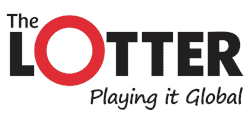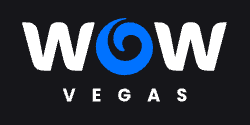Minnesota Gambling
A wide range of gambling options exist in Minnesota. Those options include everything from lotteries and pull tabs to horse racing and casino games. In all, there is no absence of games to wager money on from within state lines.
That being said, there are also a few forms of gambling not available in Minnesota. Craps and roulette are not permitted anywhere in table game form, sports betting has not been approved and there are also bet limits in place for certain forms of MN gambling.
Legal Minnesota Gambling Sites

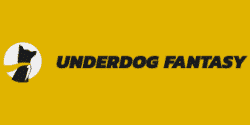
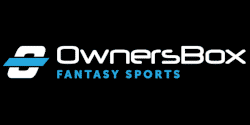


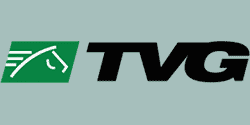
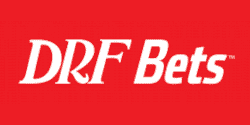
21+ and present in MN. T&Cs Apply. Gambling Problem? Call 1-800-522-4700.
Here’s a look at the legal forms of gambling that can be found in Minnesota:
- Horse racing betting: Live, mobile and off-track betting
- Slots, video poker and video table games: Tribal casinos
- Live table games that use cards: Tribal casinos and card clubs
- Live poker: Card clubs
- State lottery: Tickets sold at retailers only
- Pull tabs: Tribal casinos and bars
- Charity gaming: Only at licensed charities
Minnesota Online Gambling
The only form of legal online gambling in Minnesota is mobile horse racing. Companies such as BetAmerica and TVG accept players from the state. These are the only two licensed and legal mobile off-track betting sites available in Minnesota.
Daily fantasy sports contests are neither expressly legal nor illegal. DFS sites such as FanDuel and DraftKings operate under the assumption that what they offer meets the definition of a “contest of skill.”
Minnesota’s attorney general has never opined on daily fantasy sports and the legislature has not enacted any laws to cover the activity. Therefore, major DFS providers will continue operating in Minnesota until someone tells them to cease and desist. That does not appear to be a major risk at this time.
Minnesota Casinos
Land-based gambling in Minnesota is restricted to tribal casinos that are allowed to offer video slots, video keno and poker. Tribal casinos may also offer blackjack and certain other table games such as Ultimate Texas Holdem and three card poker.
Under Minnesota gambling law, slots must offer a return-to-player percentage (RTP) of 80-95%. Keno must offer an RTP of 75-95% and electronic table games must return 83-98%.
Card clubs are permitted at the state’s race tracks. These establishments may offer live poker and table games. Slots, video poker and keno are not allowed at Minnesota race tracks.
Brick and Mortar Casinos in Minnesota
- Black Bear Casino Resort
- Fond Du Luth Casino
- Grand Casino Mille Lacs
- Grand Portage Lodge & Casino
- Little Six Casino
- Northern Lights Casino
- Cedar Lakes Casino
- Fortune Bay Casino
- Grand Casino Hinckley
- Jackpot Junction
- Mystic Lake Casino
- Prairie’s Edge Casino Resort
- Seven Clans Casino Thief River Falls
- Shingobee on the Bay
- Treasure Island Resort & Casino
- Seven Clans Casino Red Lake
- Seven Clans Casino Warroad
- Shooting Star Casino
- White Oak Casino
There are also two race tracks in the Twin Cities area that host table games and poker:
- Canterbury Park
- Running Aces
Minnesota Sports Betting
Sports betting is not currently legal in Minnesota. A bill was introduced in the senate tax committee in 2019. It cleared its first hurdle, advancing to the main state government committee where it died.
A companion house bill never made it out of a committee. The bill would have permitted the state’s tribal casinos and race tracks to offer sports betting. Mobile betting would have also been permitted. The bill’s sponsors vowed at the time to reintroduce the bill the following year.
Minnesota lawmakers are also taking note that many of their residents are crossing the border into Iowa to get their sports betting fix. The sportsbook at Diamond Jo Worth sits just across the border and, according to local reports, attracts no small number of Minnesotans.
Minnesota Poker
In-person poker is legal in Minnesota but there is a $100 bet limit in cash games. However, there is no buyin limit in tournaments and savvy poker room operators devised survival poker tournaments to circumvent the restriction.
Survival poker tournaments last for one to three hours, come with a $300 buyin and allow unlimited rebuys. There is also a time charge of $15 per hour. Each chip equals $1 and payouts are based on the exact number of chips a player has at the end of the timed tournament.
Blind levels increase only marginally every hour throughout the tournament. For example, a typical setup is a two-hour survival tournament beginning with $1 and $2 blinds that advance to $2 and $2 after the first hour.
Some Minnesota poker rooms offer survival tournament buy-ins up to $10,000. Formats include no limit Texas Hold’em and pot limit Omaha.
The most popular games are spread at Minnesota casinos. This includes Texas Hold’em, Omaha, Omaha Hi/Lo, Seven Card Stud and Seven Card Hi/Lo. All cash games are either fixed limit or spread limit.
Minnesota Poker Rooms
There are eight poker rooms to choose from in Minnesota. Six are found at tribal casinos and two are found at race tracks in the Twin Cities metro area.
- Canterbury Park Poker Room: 32 tables: 2/4 through 20/40 limit Hold’em, 6/12 Omaha Hi/Lo, mixed games and daily tournaments and survivor games.
- Running Aces Poker Room: 20 tables: Two daily no limit Hold’em tournaments, spread and fixed limit Hold’em and Seven Card Stud.
- Fortune Bay Poker Room: 4 tables: Weekly no limit Hold’em tournaments and spread limit cash games.
- River’s Edge Poker Room at Mille Lacs: 8 tables: Spread limit Hold’em and weekend tournaments.
- Northern Lights Poker Room: 3 tables: Fixed limit Hold’em, small no limit Hold’em tournaments.
- Seven Clans Poker Room Warroad: Weekend tournaments, daily 2-10 spread limit Hold’em.
- Shooting Star Poker Room: 7 tables: Daily spread limit Hold’em, no tournaments.
- Treasure Island Poker Room: 6 tables: Weekend tournaments, daily spread limit Hold’em games.
Minnesota Daily Fantasy Sports
There are no laws in Minnesota that apply to daily fantasy sports and no state attorney general has filed an opinion on such contests to date.
Additionally, the state legislature has never taken the time to review it. Major operators offer daily fantasy sports in Minnesota under the assumption what they offer is a contest of skill. Large DFS sites such as DraftKings, FanDuel and Yahoo accept customers from Minnesota.
Minnesota Esports Betting
There is no legislation that covers esports in Minnesota. The game of skill argument would apply. If a player can demonstrate there is a substantial element of skill, one could reasonably assume that it would not be gambling under Minnesota law.
However, spectators betting on eSports would not be legal under the law.
Major esports betting sites (where players pay an entry fee to compete against one another for money) accept customers from Minnesota and have so far suffered no legal backlash for doing so. Two major esports betting sites that accept MN residents include:
- PlayersLounge.co
- GamerSaloon.com
Minnesota Lottery
The Minnesota Lottery sells scratch-off and lotto tickets. There is also a Millionaire Raffle. Sales are not permitted over the internet. Minnesota Lottery tickets are only available at retailers, such as convenience, grocery and liquor stores. Proceeds from lottery sales go to natural resources and the game and fish fund. Player winnings account for about 65 percent of total sales.
There are seven lotto drawings offered by the Minnesota Lottery. Three are only offered in the state. Those games are Northstar Cash, Daly 3 and Gopher 5. The interstate lotto drawings are:
- Powerball
- Mega Millions
- Lucky for Life
- Lotto America
MN Online Lottery
The Minnesota Lottery authorized online sales of instant win games for a brief period spanning 2014-2015. Under MN law, the lottery has wide legal authority to expand its gaming options without consulting the legislature.
However, lawmakers came out strongly against the idea after the MN Lottery opted to authorize online sales and introduced legislation that same year to put an end to those games. Then-governor Mark Dayton vetoed one such bill in 2014, but finally relented when lawmakers advanced a similar bill in 2015.
Dayton opted not to veto the second bill and instead allowed it to pass into law without his signature. The passage of the bill halted online ticket sales in MN and no serious efforts have been made since to revive the concept.
Today, lottery tickets may only be purchased in-person at authorized retailers.
Minnesota Skill Games
Minnesota Statue 609.75 does not provide an explicit definition of “gambling,” but it does define a “bet” as follows:
“…a bargain whereby the parties mutually agree to a gain or loss by one to the other of specified money, property or benefit dependent upon chance although the chance is accompanied by some element of skill.”
The statute further explains that a “bet” does not include:
“…any bona fide contest for the determination of skill, speed, strength, endurance, or quality or to the bona fide owners of animals or other property entered in such a contest…”
It also defines gambling games and devices as something that has no substantial elements of skill.
This would seem to permit games where participants make wagers between each other on skill competitions. This exception combined with the lack of an attorney general’s opinion is likely why daily fantasy sports operators offer their services in Minnesota.
Under these definitions, a player is unlikely to be in violation of the law if he wagers on his own performance in a competition of skill such as paying an entry fee to enter a bowling league or golf tournament.
Skill game sites are presumed to be legal in Minnesota. GSN’s WorldWinner is the most popular.
Minnesota’s sweepstakes law does not allow sites like WPT Online to operate in the state.
Skill-based gaming machines are not approved at the state’s tribal casinos. The only approved machines are electronic slots, video poker and video keno.
Minnesota Gambling Laws
Legal gambling came to Minnesota in 1945 with legislation that authorized charities to host bingo games as a fundraising activity. Paddlewheels, tipboard games and raffles were added in 1978.
In 1981, pull-tabs were added to charitable gaming. That same year, bingo expanded to tribal land due to a U.S. Court of Appeals ruling.
In 1982, live horse racing was approved by voters after being placed on the ballot by the Minnesota Legislature. The Minnesota Racing Commission was approved the following year as pari-mutuel betting was created. The first race in Minnesota occurred at Canterbury Downs in Shakopee.
In 1988, a legislative ballot initiative permitted Minnesotans to vote on a state lottery and it passed that November. The first lottery tickets were sold in April 1990.
In 1989, after the Indian Gaming Regulatory Act passed Congress, Minnesota negotiated seven gaming pacts with tribal groups for video gaming. That same year, off-track betting was legalized on horse racing. The policy would be later ruled unconstitutional by the state supreme court. A constitutional amendment would later permit off-track betting.
In 1991, blackjack was added to the permitted games at Minnesota tribal casinos.
In 1999, card clubs were permitted at the state’s race tracks. At the time, only Canterbury Park qualified. Running Aces would join the market in 2008.
In 2012, the state legalized electronic pull tabs at bars for charities. The main goal of this legislation was to fund the stadium built for the Minnesota Vikings. It took until a change of operators in 2018 to turn revenues around and become relevant in terms of paying off the stadium bonds.
All gambling in Minnesota has a minimum age of 18. However, some casinos limit entry to those at least 21 years old.
The following agencies regulate gaming in Minnesota. Note that charity gaming is licensed at the local level.
Minnesota Lottery Law
The Minnesota Lottery was created through a November 1988 constitutional amendment. The first tickets were sold in April 1990. Lottery proceeds, after accounting for prizes and administration costs, funds environmental causes in the state. Each of the state’s 87 counties receive funding to restore and protect the environment. Recipients include the Game and Fish Fund and Environment and Natural Resources Trust Fund.
Minnesota Tribal Casino Law
Tribal gaming started in 1981 after the U.S. Court of Appeals determined that bingo was permitted on tribal lands. In 1987, a different court ruling permitted tribes to offer any form of gambling legal commercially in the state without regulation. This brought pull-tabs and other charitable gaming methods to reservations in the state.
Congress passed the Indian Gaming Regulatory Act in 1988. This permitted states to create gaming pacts with tribes. Within a year, seven tribes negotiated compacts with Minnesota. In 1990, two other tribes joined. This agreement permitted video poker, slots and keno at tribal casinos. In 1991, blackjack was added to the mix of games. Eventually, other card games and electronic table games were licensed.
Minnesota tribal casinos must limit payouts. Keno must pay between 75 and 95 percent. Slots, which must be entirely electronic, must return between 80 and 95 percent. Video poker and electronic table games must return from 83 to 98 percent to players.
Charitable Gaming Law
Charitable gaming dates to 1945 in Minnesota. That is when paper bingo was legalized for registered charities. Local jurisdictions can decide to license the charities. All regulation is at the county or city level these days.
In 1978, raffles, tipboards and paddlewheels were offered. In 2012, pull-tabs were permitted to be electronic. These games may be offered in taverns, which may charge a reasonable rent of no more than 110 percent of the market rate. Redemption machines that sell tickets or display winnings on screens are allowed. The 2012 law permitted the stadium authority for the Minnesota Vikings to offer electronic pull-tabs on tablets, which mimic slot machines.
Minnesota Online Gambling Laws
Horse racing betting is the only form of online gambling specifically addressed by MN law. Advance deposit wagering providers (legalese for “online betting sites”) must be licensed and adhere to a litany of regulations to offer their services in MN.
TVG and BetAmerica are both authorized to conduct advance deposit wagering in MN.
Minnesota Poker Laws
Live poker is addressed by a number of gaming laws depending on where the games take place. Commercial poker games are only permitted at tribal casinos and race tracks with a bet limit of $100 on cash games and no cap on tournament buyins.
Social poker games are legal if they meet certain requirements such as not being held for a profit, not being regularly organized, not being advertised and not awarding more than $200 in prize money. The law in this area is a bit hazy, so it is best to speak with a legal professional for assistance prior to organizing a social game of poker.
Certain business establishments may also host Texas Holdem tournaments provided these conditions are met:
- Players are not charged a tournament fee or entry fee of any type
- The value of the prize awarded to a single winner in a single day may not exceed $200
- Reasonable accommodations must be made for players with disabilities, including ensuring Braille cards are made available for blind players
- All players must be at least 18 years of age
Minnesota Sports Betting Laws
Sports betting is not permitted in Minnesota. The state first looked to legalize it in 1994. However, the state’s attorney general opined that challenging the Professional and Amateur Sports Protection Act was a futile task.
In 2018, the U.S. Supreme Court nullified that law after finding it unconstitutional. The following year, the state house and senate introduced bills to legalize sports betting in the state. Neither bill made its way out of committee. The bills would have permitted sportsbooks at tribal casinos, race tracks and on mobile devices.
Iowa casinos, some located within a few miles of the state line, offer legal sports betting.
Minnesota Horse Racing Laws
Legal horse racing dates to 1982 in Minnesota. That is when the state’s voters created a constitutional amendment. The first legal race was held at Canterbury Downs, just outside Minneapolis, the following year.
Off-track betting has a rocky history in Minnesota. It was legalized on non-race days in 1989. In 1994, the state supreme court ruled this to be unconstitutional. It required a ballot initiative to bring it back. In the meantime, Canterbury Downs when bankrupt.
Canterbury was saved in 1999 when card clubs were legalized. This permitted poker, and later, blackjack and other table games.


